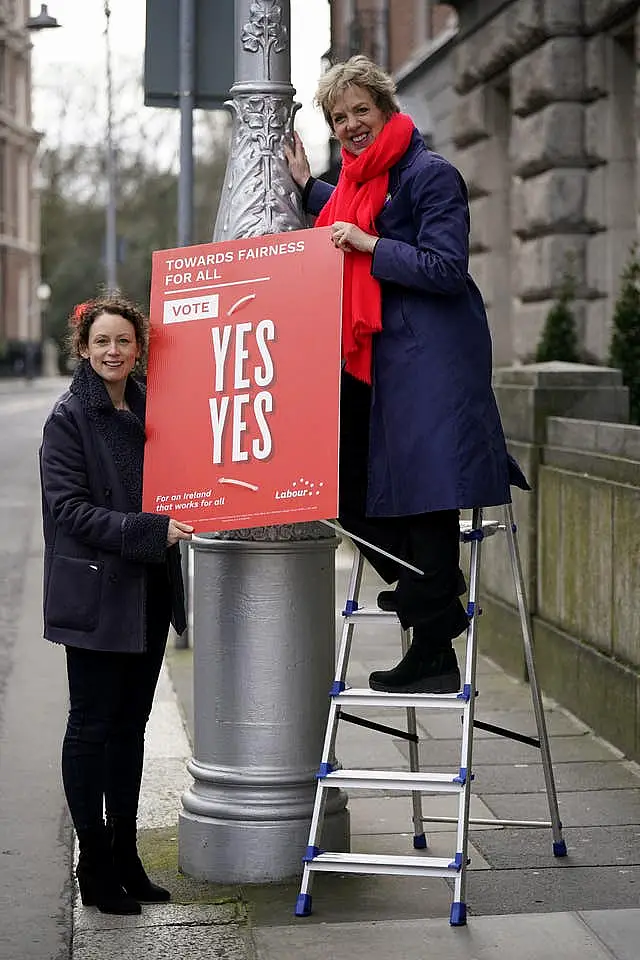Labour leader Ivana Bacik has said the proposed constitutional changes on the definition of the family and acknowledging carers would represent a “step forward” on the current wording.
She said despite being disappointed with the two amendments initially, the party believes they represent “a real step forward towards a more contemporary text, towards a more fair Ireland and towards a more inclusive and more equal society”.
Ms Bacik said her party would continue to push for better supports for carers after the votes in March.
“We see this as calling for a ‘Yes, Yes, And’ – we want to continue to campaign beyond the referendum on better supports for care in particular.”

Senator Marie Sherlock, who is Labour’s director of elections, said the party feels “very passionately” about broadening the constitution’s definition of the family beyond the current “very restrictive” definition based on marriage.
She said that although the party views the care amendment as “a missed opportunity”, there was a need to recognise 30,000 people who are doing care work in the family home.
Two referenda will be held on March 8th – International Women’s Day – proposing to change the Irish constitution.
One, the family amendment, proposes amending Article 41 of the constitution to extend the meaning of family beyond one defined by marriage and include those based on “durable” relationships.
The second, the care amendment, proposes deleting Article 41.2.1 and 41.2.2, which make reference to a woman’s role and duties in the home, and replace it with a new article – 42B – that acknowledges family carers.
The government parties, Labour, the Social Democrats, the National Women’s Council, One Family and Treoir are all advocating for a Yes vote in both referenda.
TD Peadar Toibin’s Aontu party and Senator Ronan Mullen are among those advocating for a No vote in both plebiscites.
Some organisations, such as Free Legal Advice Centres (Flac), are advocating for a Yes vote in one and a No vote in the other.

Flac supports the family amendment, which it said would have positive policy and legal implications in areas such as social welfare, family, taxation, and succession law.
Though it called the so-called “women in the home” provision “ineffective, sexist and offensive”, it said the proposed care amendment “is as ineffective”.
“The amendment would give constitutional expression to harmful stereotypes such as the concept that the provision of care, including the care of older adults and adults with disabilities, is the private responsibility of unpaid family members without any guarantee of State support,” it argued.
“Like the explicitly sexist ‘women in the home’ provision, the proposed Article 42B endorses a status quo where women undertake the bulk of unpaid care work and places no obligation whatsoever on the State to redress this gender imbalance – rendering it an implicitly sexist amendment.”
Ms Bacik, who is a barrister, said she disagrees with Flac’s argument that the care proposal does not represent an improvement.
She said: “I do disagree with them where they say the proposed wording 42B article on care, that that would represent a step backward. I don’t think that’s right. It clearly is a step forward – perhaps not as big a step forward as we would like – but nonetheless, a great improvement on what has gone before.
“I also disagree with them and take issue with them when they say that 42B endorses the status quo of the gender division on care in the home, I don’t think that’s a correct interpretation.”
Ms Bacik said that fathers and male family members who provide care are not recognised in the constitution as it currently stands, which is why the proposed wording represents “a step forward”.
“Many people will have criticisms, but ultimately, we have to choose,” she said.







